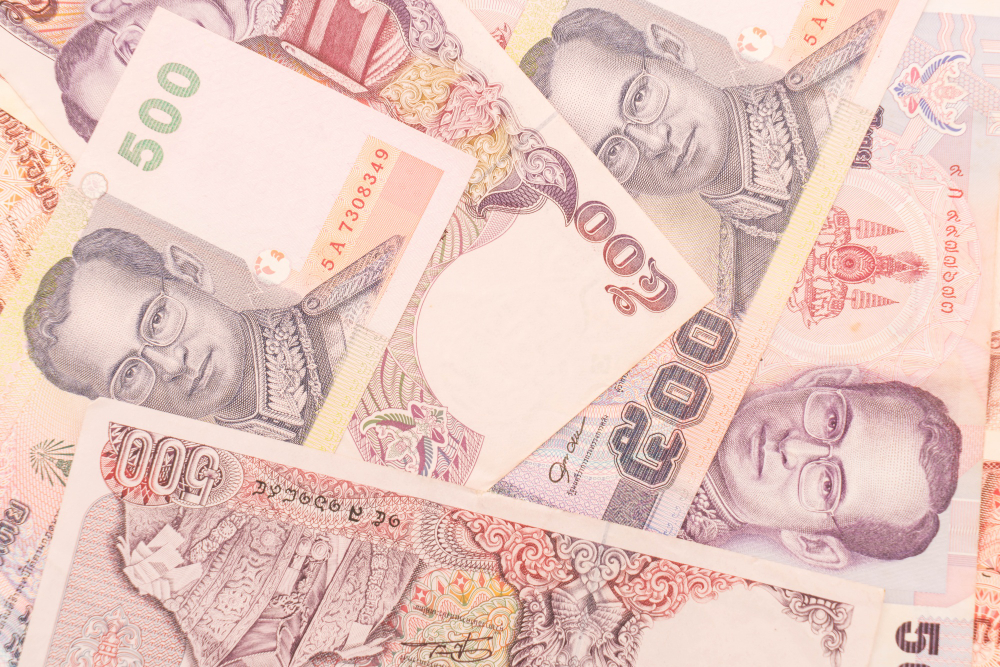Transferring Funds Safely for Your Property Purchase in Thailand
Today we’ll be covering one of the most common questions from international buyers looking to purchase property in Thailand: “How can foreigners safely transfer funds when buying property in Thailand?” While it may sound straightforward, there are important regulations that both buyers and developers must abide by. Transferring large sums of money internationally requires careful planning, secure methods, and compliance with Thai laws. In this guide, we’ll walk you through the best practices for transferring funds safely for your property purchase in Thailand, legal requirements, and practical tips to ensure your investment reaches its destination safely and efficiently.




Understanding the Legal Requirements In Thailand
Before we dive into how you can transfer funds to Thailand for a property purchase, it’s important to understand that foreigners must comply with strict regulations regarding fund transfers. The key requirement is proof of funds, showing that all money used for the property purchase comes from a legitimate foreign source. Transfers should typically be made from overseas in foreign currency and properly recorded by a Thai bank. This documentation is especially crucial for condominium purchases, where the full amount must be remitted and recorded to establish legal ownership.
Failing to provide proper proof or follow these rules can lead to delays or complications when registering property ownership.
Choosing a Secure Method To Transfer Funds To Thailand
There are several options for transferring funds safely:
- Bank Wire Transfers: The most common and secure method. Use international banks with Thailand branches to reduce risks and fees.
- Foreign Exchange Brokers: Can offer better rates than banks for large transfers and help manage currency fluctuations.
- Multi-currency Accounts: Some global banks allow you to hold multiple currencies and convert funds strategically to optimize exchange rates.
Tip: Always ensure the receiving account is verified and belongs to the seller or authorized escrow agent. Never send money to personal accounts without proper documentation.


Avoiding Common Risks When Transferring Funds To Thailand For Property Purchases
Transferring large sums internationally comes with potential pitfalls:
Fraud or Scams: Verify all parties, contracts, and bank details before transferring any funds.
Currency Fluctuations: Large purchases can be affected by exchange rate changes; consider locking in rates with your bank or broker.
Incomplete Documentation: Ensure all transfers are accompanied by invoices, contracts, and bank forms as required by Thai authorities.
By carefully planning and documenting every step, you can significantly reduce risks.
Working With EXPERTS
Engaging experts can make the process smoother:
- Real Estate Lawyers: Ensure transfers comply with Thai law and review contracts.
- Banks & Financial Advisors: Provide advice on exchange rates, secure transfer methods, and international banking regulations.
- Property Agents: Experienced agents can coordinate payments, verify sellers, and manage timelines for fund transfers.

Step-by-Step Fund Transfer Checklist When Buying Properties In Thailand
- Verify the property ownership and seller details.
- Open a Thai bank account (if required).
- Prepare the Foreign Currency Transaction Form (FCT).
- Choose your transfer method (bank, broker, multi-currency account).
- Transfer funds to the verified account or escrow.
- Confirm receipt with the seller or lawyer.
- Complete property registration at the Land Office or follow the developer’s scheduled payment plan based on construction milestones.
Handy Tips to Note for Scheduled Payments
Document Each Payment – Keep receipts, bank confirmations, and correspondence for each transfer. This can be important for legal compliance and proof of fund transfers for the Bank of Thailand.
Link Payments to Progress Reports – Whenever possible, link each scheduled payment to independent progress reports or inspections. This ensures that you only release funds when construction meets the agreed standards.
Transferring funds safely is an essential part of buying property in Thailand, especially for luxury or high-value purchases. By following legal requirements, using secure transfer methods, considering escrow accounts, and working with professionals, you can protect your investment and ensure a smooth transaction. For buyers investing in Thailand, safely transferring funds is just as important as choosing the right property and careful planning now can save you time, money, and stress later.
